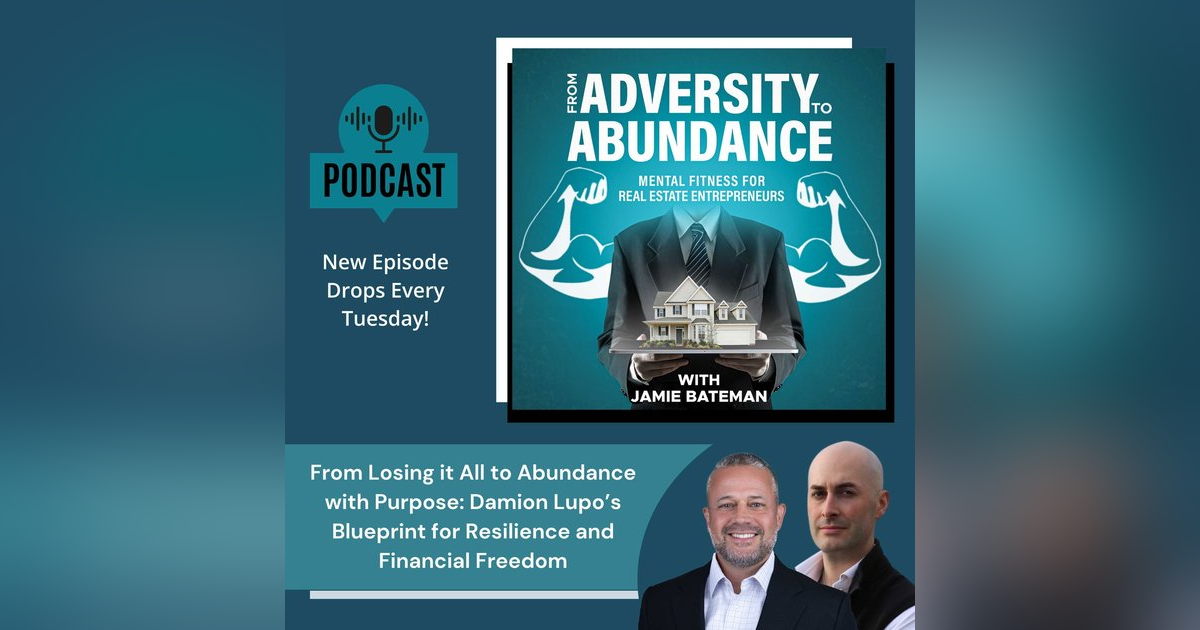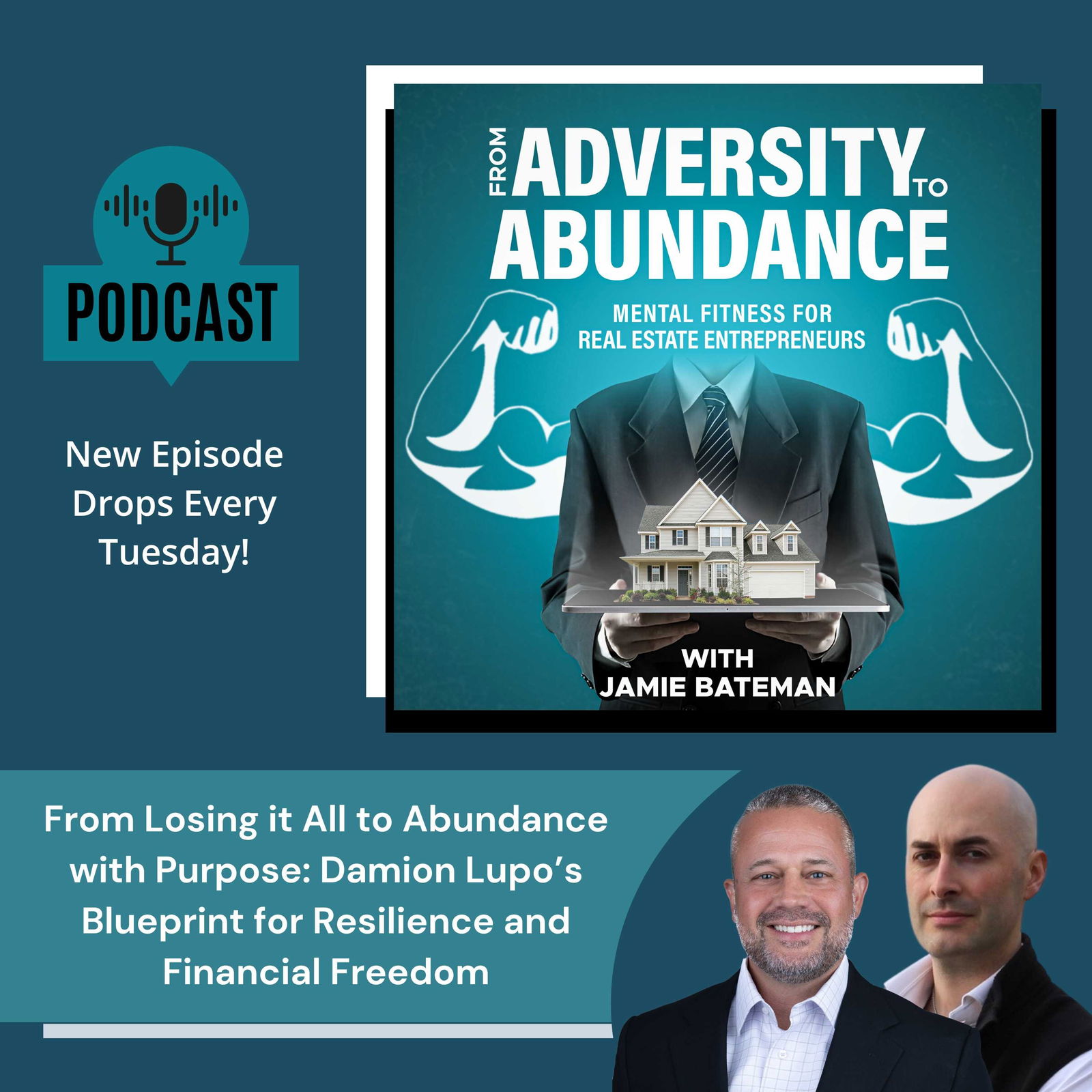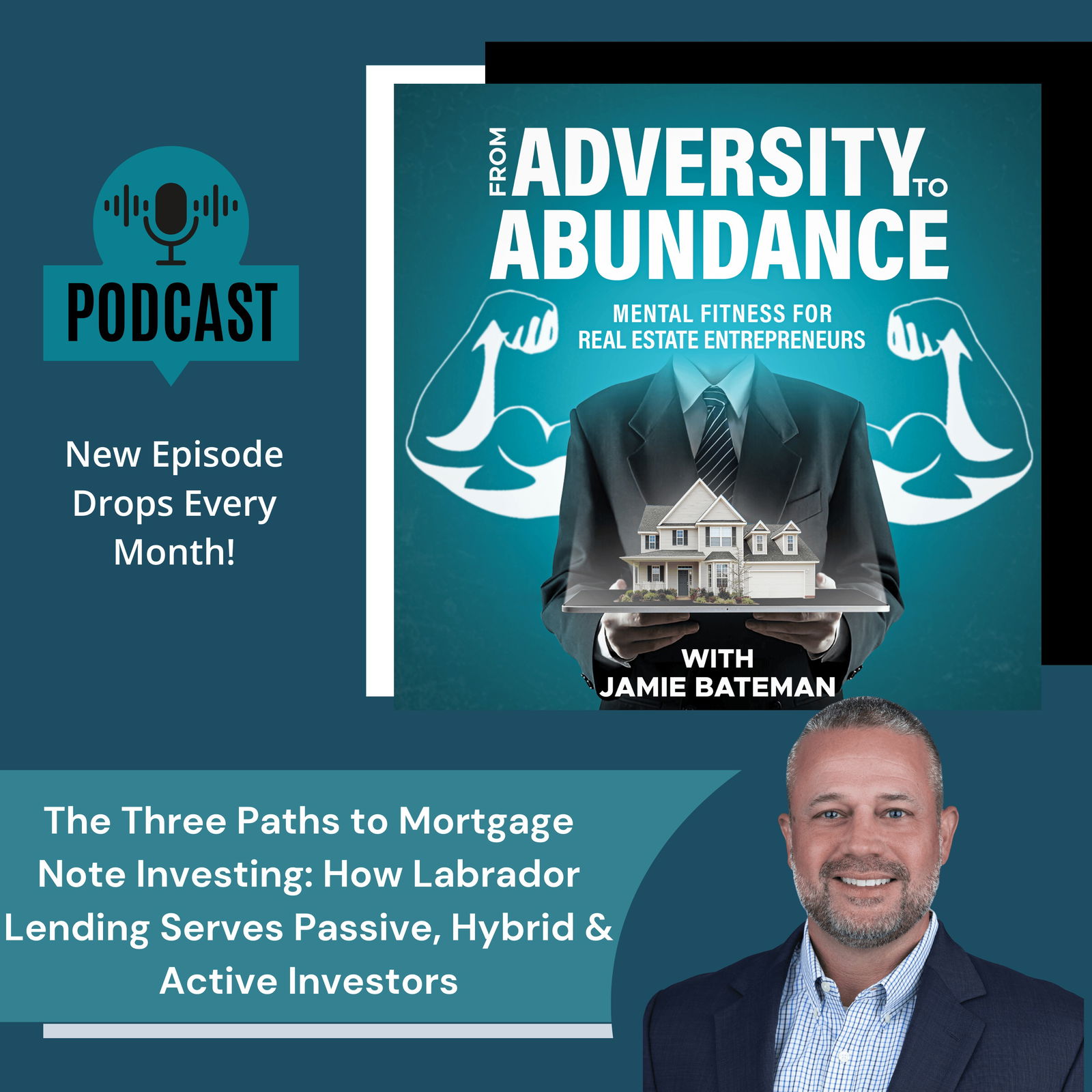From Losing it All to Abundance with Purpose: Damion Lupo’s Blueprint for Resilience and Financial Freedom


In this episode of From Adversity to Abundance, host Jamie Bateman dives deep into the story of Damion Lupo , a seasoned entrepreneur who has built over 70 companies, faced devastating financial loss, and rebuilt his life through resilience, purpose, and intentionality.
After losing all of his $20M portfolio during the 2008 financial crash and briefly experiencing homelessness, Damion reinvented his life by focusing on solving problems, empowering others, and aligning his work with a greater mission. In this episode, Damion shares practical insights on financial freedom, building purpose-driven businesses, and staying ahead in a rapidly changing world shaped by AI and innovation.
If you’re looking for actionable strategies and inspiring lessons on turning adversity into abundance, Damion’s story will leave you motivated to take the next step in your journey.
Guest Introduction:
Damion Lupo
Damion Lupo is an entrepreneur, author, and financial strategist who has founded over 70 businesses. He is the creator of the EQRP, a unique retirement solution that empowers individuals to control their investments in alternative assets like real estate and gold. After losing everything in the 2008 financial crash, Damion redefined his approach to wealth by focusing on purpose, service, and intentional living. Today, he dedicates his life to helping others achieve financial freedom and create meaningful impact.
Episode Highlights:
- Damion’s entrepreneurial spirit began in college, where he disrupted his university’s bookstore system to provide students with better options—an innovation that got him kicked out of school.
- Losing a $20M portfolio in the 2008 crash forced Damion to reevaluate his mindset, confront his ego, and focus on building a purpose-driven life.
- A pivotal conversation with his father before his passing in 2013 inspired Damion to shift his focus from accumulating material wealth to creating meaningful experiences and solving problems for others.
- Learn why most people lose sudden windfall wealth and how Damion’s financial playbook ensures sustainable, intentional wealth management.
- Damion discusses how his EQRP company empowers individuals to take control of their retirement accounts and invest in alternative assets.
Key Lessons for Entrepreneurs and Investors:
- The importance of resilience and humility in overcoming failures and achieving long-term success.
- Aligning your work with a mission that serves others leads to both fulfillment and financial abundance.
- Intentional wealth management and financial clarity are critical for achieving freedom.
- Embrace rapid technological changes and prepare for disruption to thrive in an evolving world.
Connect with Damion Lupo:
Website: TurnkeyRetirement.com
Free Resource: Download Damion’s 10 Steps to $10 Million mini-book at TurnkeyRetirement.com .
Integrity Income Fund:
https://app.myleadbutler.com/v2/preview/durLfkDjZHoJstX54tWe?notrack=true
—
Labrador Mentorship:
labradorlending.com/investors/active-investors/
—
Haven Financial Services:
Learn more: jamie.myfinancialhaven.com/
—
Purchase Jamie’s Book: www.amazon.com/dp/B0CGTWJY1D?ref_=pe_3052080_397514860
—
Leave us a REVIEW: podcasts.apple.com/us/podcast/from-adversity-to-abundance/id1618672867?mt=2&ls=1
www.adversity2abundance.com/reviews/new/
—
Podpage:
Calling all aspiring podcasters and seasoned pros! Transform your podcast with a stunning website in minutes. Sign up for Podpage today to effortlessly grow your audience with our easy-to-use tools.
Sign up here: www.podpage.com/?via=jamie-bateman
Connect with us
Website: www.adversity2abundance.com
Facebook: www.facebook.com/profile.php?id=100089126144055
Instagram: www.instagram.com/adversitytoabundancepodcast/
LinkedIn www.linkedin.com/company/89949391/admin/feed/posts/
Youtube: www.youtube.com/@FromAdversity2AbundancePodcast
Connect with Jamie
LinkedIn: www.linkedin.com/in/jamie-bateman-5359a811/
Twitter: twitter.com/batemanjames





